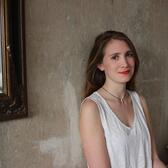Let's Celebrate our Hermiones
Harry Potter and the Deathly Hallows came out ten years ago today, which means it’s been a decade since I stayed up all night tearing through its pages to find out whether Harry actually defeats Voldemort in the end. The Boy Who Lived had been with me since the spring of 1999, when wizard fever swept America. For the next eight years, my friends and I enthusiastically threw ourselves into the series, just like millions of other nerdy “alternative” millennials. I didn’t care about senior prom; I deeply cared about the Deathly Hallows release two months later.
Of course, a decade on, Harry Potter is still with us. Try this experiment: find a group of late-twenty-something yuppies in hip glasses who work at nonprofits and start-ups. Observe them and see how long it takes for their conversation to devolve into an argument about who’s in what Hogwarts house. Seriously, try it. I’ll wait here.
Harry Potter was, and is, a huge cultural touchstone for a certain kind of American girl. These touchstones shape and inform who we are, how we view the world, and how others see us. There’s so much about Harry Potter that sticks with me and my generation, but I want to talk about the character whose portrayal and trajectory feel all too pertinent in America in 2017: Hermione Granger.
Plenty of words have been written on how Harry Potter would look with Hermione as the protagonist, which is a fruitful and important conversation, but I’m going to stick with Hermione’s portrayal in canon as a strong secondary character. This wunderkind daughter of Muggles showcases her academic aptitude and incredible work ethic before she even arrives at Hogwarts. She signs up for too many classes, does too much homework--honestly, without her help, Harry and Ron would have flunked out of Hogwarts and/or died by like the 200th page of Sorcerer’s Stone. As she ages into teenagehood, she becomes an activist, trying to muster her classmates to outrage over the fact that Hogwarts is basically run on house elf slave labor.
Let’s be real, Hermione is coded as kind of Jewish: she cares deeply about learning and hard work, she has a passion for social justice, she has strong opinions and doesn’t hold back on sharing them, and she even has unruly hair.
As fans know, these traits don’t exactly win Hermione respect and adulation from her classmates. But the worst part is how her friends treat her. Ron and Harry, her best buds, mock her for characteristics that would be considered positive in a boy. She’s not just smart; she’s loud about it, which means she’s defined as bossy, opinionated, a know-it-all (and yet this doesn’t seem to be a problem when she’s doing Ron’s and Harry’s homework). Her friends make fun of her activism because it’s uncool and she shouldn’t waste her time on it; house elf enslavement has always been a part of Hogwarts life, and she shouldn’t get so worked up over something so normal. Why can’t she be more like Lavender Brown and Parvati Patil, with their huge butterfly hairclips?!
It would have been nice to see Hermione’s classmates admire her for her intelligence and idealism instead of tearing her down, but would it have been realistic? In the early 2000s, it was not easy to be an aggressively smart teenage girl. One of my hobbies is holding onto petty resentments from the past, so I’ll never forget the time my more “popular” friend advised me to dumb it down if I ever wanted to lose my virginity, which in this case symbolized popularity and acceptance from my peers. The sad part? My friend was probably right. Hermione’s treatment at the hands of her closest friends was all too resonant for so many of us.
In the face of this unrelenting poor treatment, some girls would understandably act dumb or try to change to win their friends’ approval and stop the bullying, but not Hermione. As the series progresses, she never makes herself smaller, dumber, or quieter. She remains, obstinately and wonderfully, Hermione. And people start to appreciate her for it. She gets a stamp of approval from international Quidditch star Viktor Krum (he spots her quietly studying in the library and invites her to the Yule Ball based on her bookishness; this is the most unrealistic part of the whole Harry Potter series), and things evolve from there. By the conclusion of Deathly Hallows, Hermione’s feckless friends mature, and although they bullied and used and dismissed her for much of her time at Hogwarts, they eventually come to appreciate her alleged flaws as enormous strengths. Then, as we found out last summer from Harry Potter and the Cursed Child, Hermione grows up to become the Minister of freaking Magic (she also marries Ron, but let’s not talk about that).
It’s a pretty story, one in which a nerdy, smart, loud girl stays true to herself and wins the respect of friends and classmates who once scorned her for her obsessive hand-raising, late-night studying, and outspoken activism.
But it’s a story. Hermione Granger would never become Minister of Magic in real life. I know this because she didn’t (see November 2016). The low-level bullying that Hermione faces at Hogwarts, the ridicule for being an opinionated girl, the ostracization and subtle shaming that so many loudly smart, know-it-all girls face––it doesn’t disappear in adulthood. It just becomes more insidious. We saw this every time a man (or a woman!) said he just didn’t like Hillary Clinton for indefinable reasons. We see this every time a troll eviscerates a woman with an opinion online.
Ten years out from the end of Harry Potter, it seems like conditions are improving for today’s Hermiones. I’m heartened by publications such as Teen Vogue that treat teenage girls as complex beings who are allowed to care about both politics and makeup; I’m heartened by encounters with passionate self-assured young women whose intelligence doesn’t seem to be any hinderance to their social lives. And yet the ingrained hatred for powerful, noisy, intelligent women still persists in so many Americans and facets of American society.
Here’s hoping that in another ten years, the Hermiones of today will be universally celebrated, that they never try to make themselves dumber or quieter, and that they grow up to be women who are commended instead of torn down for their passion, hard work, and intelligence. Maybe by the twentieth anniversary of Deathly Hallows, one of them will even have become the Minister of Magic.








I don't see what the U.S. presidential election has to do with whether Hermione would ever "become Minister of Magic in real life." Hermione is British. The U.K. is a real country, and it had a female PM as early as 1975 (to say nothing of Theresa May, who, funnily enough, became PM in 2016).
I googled if she's Jewish and stumbled on this site. I was wondering because Hagrid in the first book asks her "How many days you got left in your holidays?" (Bottom page 196.) It was when they were staying at Hogwarts for Christmas.